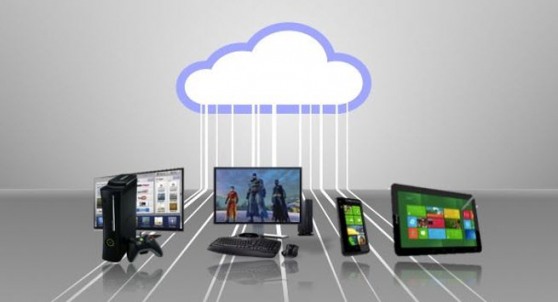<p style="text-align: justify">If you can imagine playing your favorite console video game without the console, then you have a pretty good handle on what cloud gaming is. Just like cloud computing, cloud gaming means that all of the information related to the game &#8211; such as scores, collected items and the game itself, of course &#8211; are stored on a remote server.</p>
<p style="text-align: justify">Cloud gaming has been around for a few years, but has yet to take over the gaming industry. This may seem ironic, considering the many benefits of online gaming, which includes ability to run on any browser or device and the fact that cloud gaming costs much less than traditional gaming, both for users and companies. Not only that, but cloud gaming is expected to see over $150 million in downloads in just three years, according to John Clark, Managing Director at Sega UK. This makes the lack of cloud gaming adoption even more confusing.</p>
<h2 style="text-align: justify"><strong>Overage Charges</strong></h2>
<p style="text-align: justify">Most internet service providers have migrated to tiered levels of service and have applied mobile data caps. Cloud gaming, especially those which are graphics-intensive, can use up a lot of bandwidth, and quickly. And in order to avoid going over usage limits, many gamers may simply have decided to stick with their consoles. Either that, or users wait until the end of the month nears to game in the cloud and finish up their unused data.</p>
<h2 style="text-align: justify"><strong>Tablets</strong></h2>
<p style="text-align: justify">Tablets can easily be seen as a cloud gaming killer, because they aren&#8217;t nearly as user-friendly as some of the other devices on the market. But the graphics and processing power of tablets is increasing very quickly. While this may present exciting opportunities for consumers now, the demand for better graphics and processors will wane. And once that happens, consumer focus will turn to other markers, like weight and price. This may be enough to drive those consumers to cloud gaming.</p>
<h2 style="text-align: justify"><strong>Additional Benefits and Potential</strong></h2>
<p style="text-align: justify">It seems that the benefits far outweigh the disadvantages, at least where it comes to cloud gaming. Indeed, it should be causing some sort of revolution by now. Not only can anyone run cloud games regardless of quality of their hardware, but cloud gaming requires no copying of any sort in order to access games, which means that piracy could be completely eliminated. As well, advertising and publishing cloud games are much easier to do. And we just might see a unified platform being developed once gaming hardware reaches a point where there&#8217;s little interest being expressed by the user.</p>
<h2 style="text-align: justify"><strong>Who Will See The Greatest Benefits?</strong></h2>
<p style="text-align: justify">Of course, a large part of the benefit will be the gamers themselves; there are already several on-demand gaming providers offering access to thousands of games created by popular companies for a low monthly fee. But what about the chip manufacturers? Actually, they may not fare well, simply because servers are more efficient than the PCs or consoles they&#8217;re used in. And if cloud gaming continues its upward trend, interest in consoles may wane, making it even more difficult for chipset manufacturers.</p>
<p style="text-align: justify">Looking at what&#8217;s happening to the cloud in general could be one way to determine the impact of cloud gaming. Major companies like Amazon, Qualcomm and Cisco are expanding to include the cloud. Looking at the movie industry, it&#8217;s apparent that more and more characters are being computer-generated and are looking more realistic than ever. The same is true for games. But the difference is that with games, more than one realm and story can be explored, which is a big lure for gamers.</p>
<p style="text-align: justify">How television and movie companies will adapt to include this technology in the products that they sell to customers will determine whether or not they can be considered among the winners of the cloud gaming trend.</p>
<h5 style="text-align: justify">Citations:</h5>
<ul style="text-align: justify">
<li>Who will benefit from cloud gaming?</li>
</ul>
<p style="text-align: justify">Guest author Jennifer Montoya writes on a variety of topics, particularly in the area of technology. She recommends www.highspeed-internet-providers.com as a great educational resource for understanding how broadband technology works.</p>

Will Cloud Gaming Revolutionize More Than One Industry?
